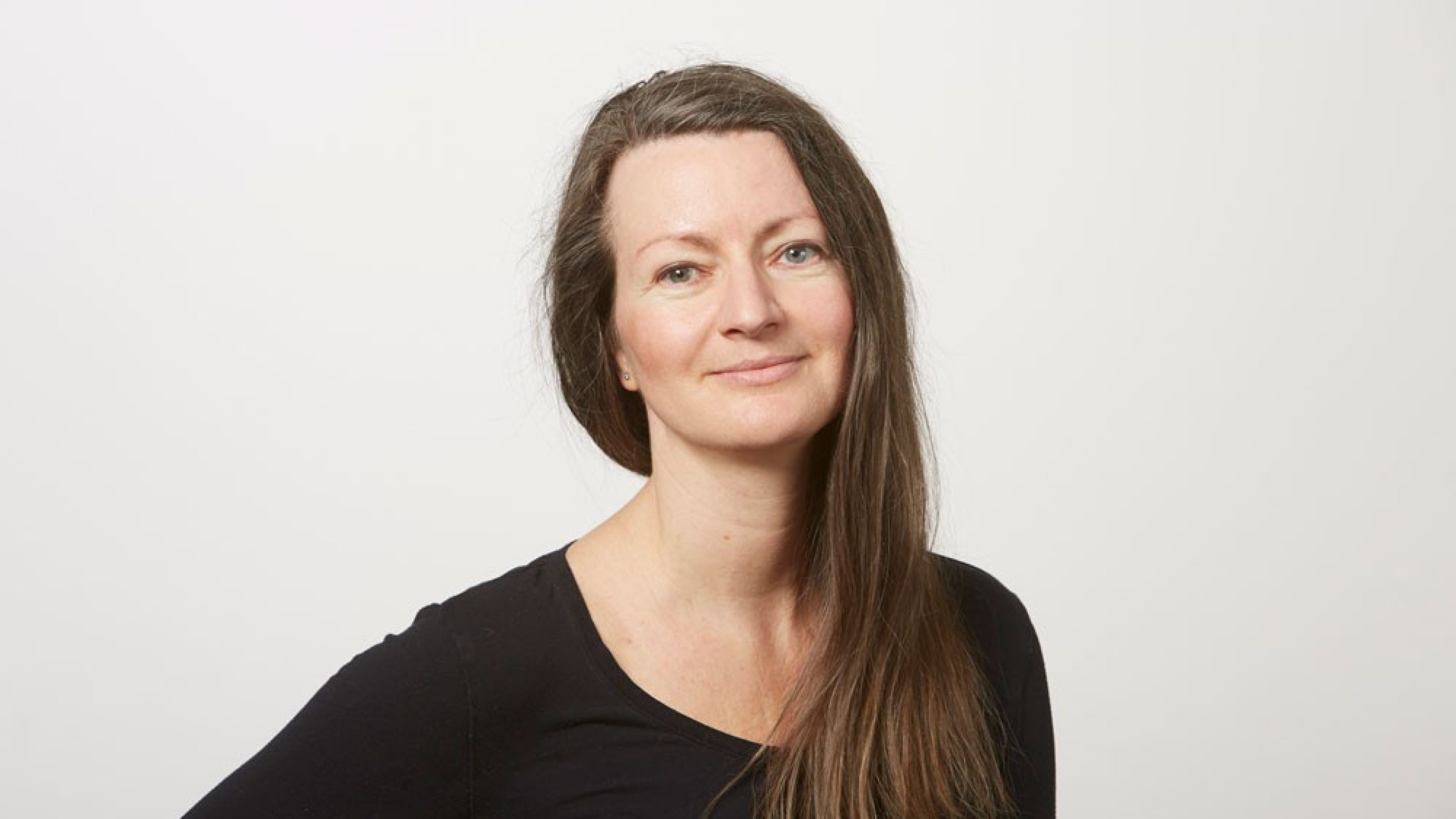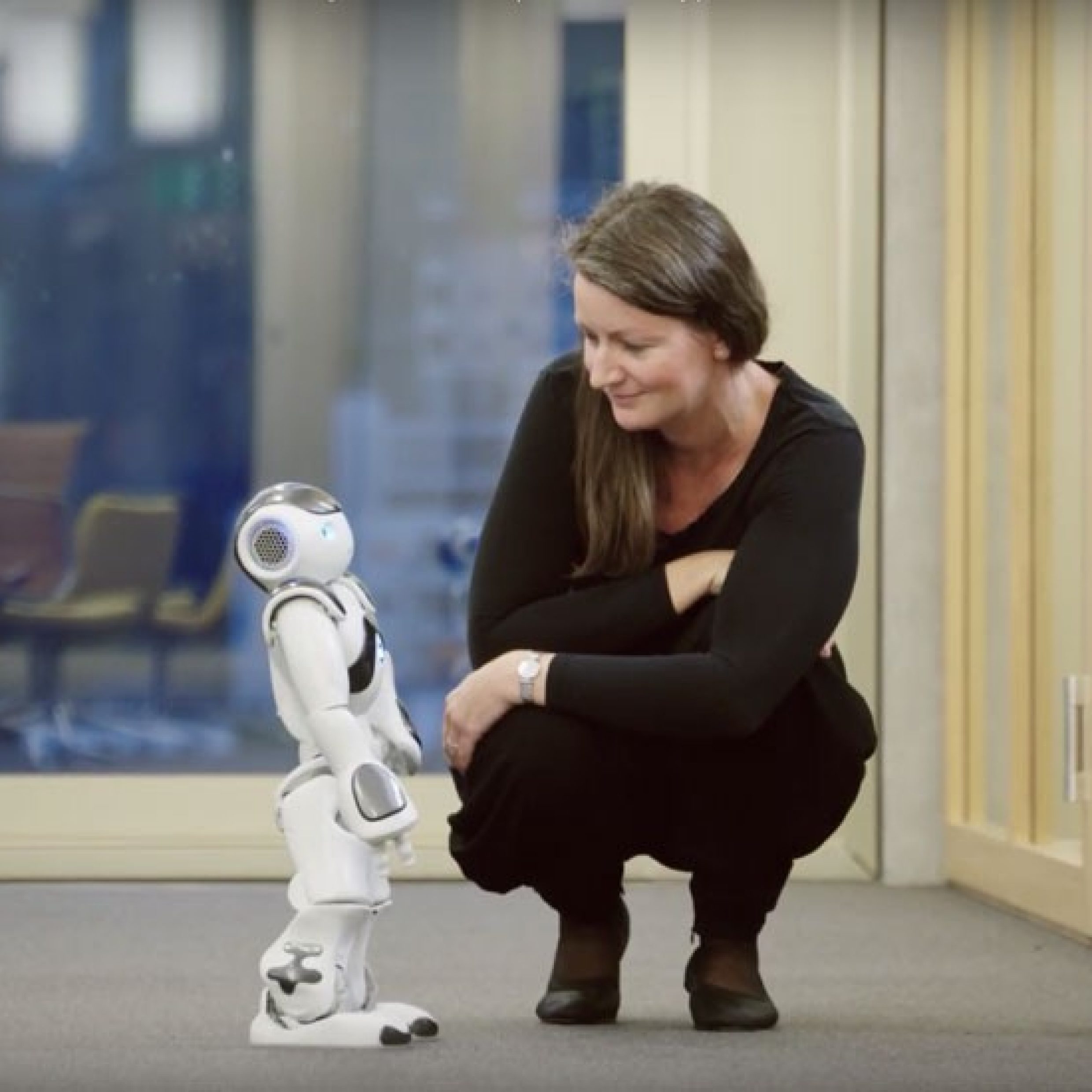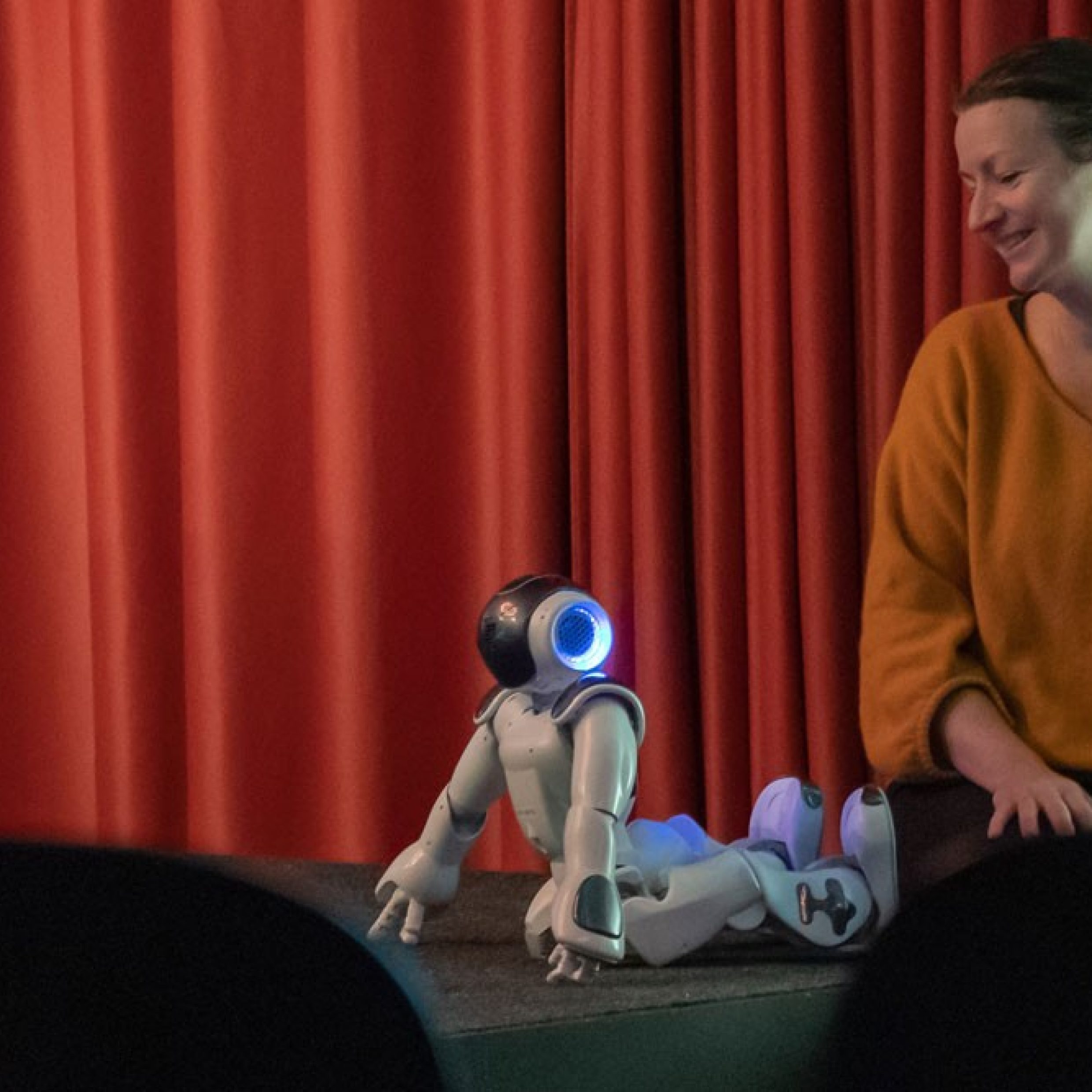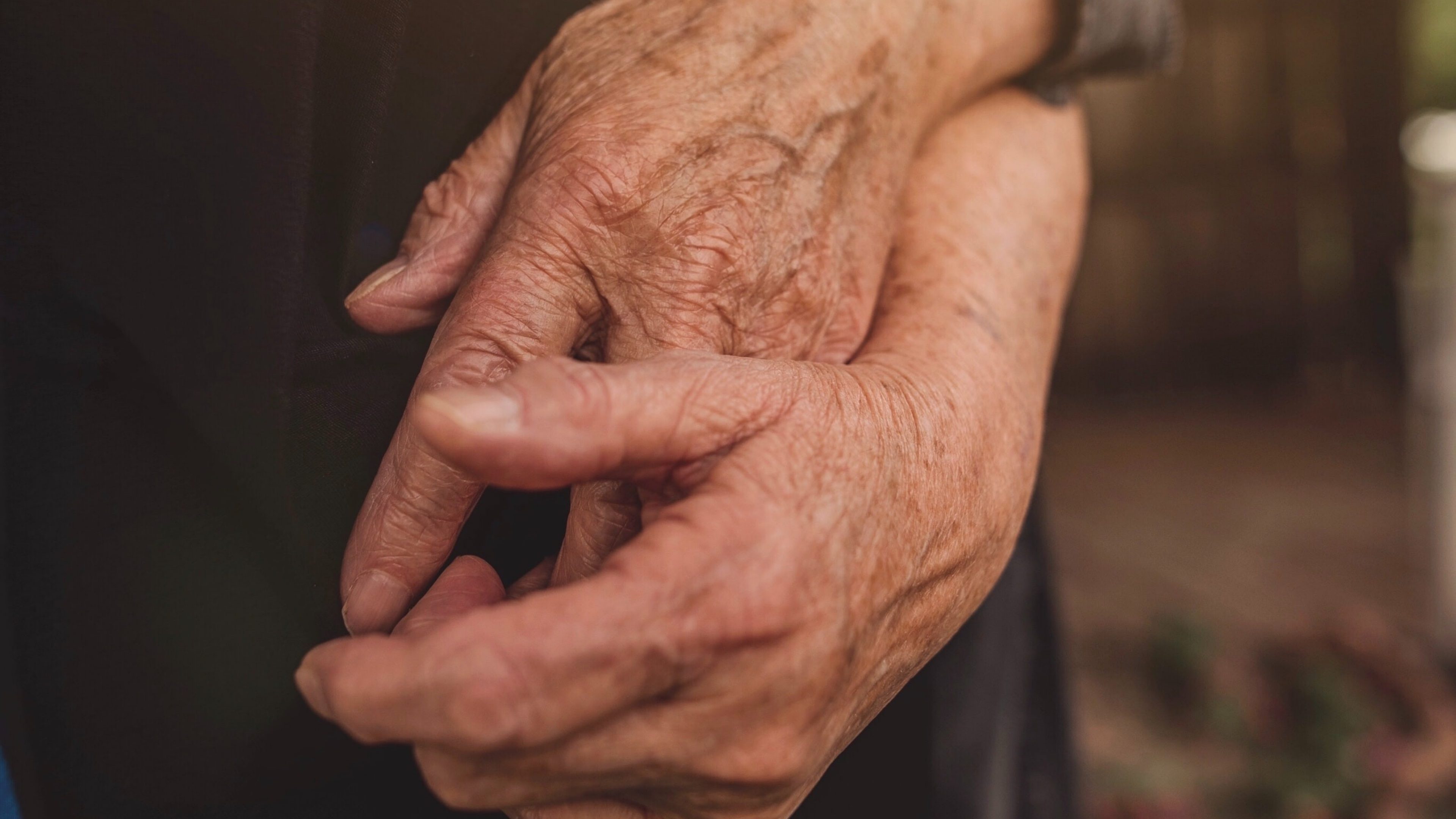A self-determined life in old age? We looked at these and other questions with Sabina Misoch. She heads the Institute for Ageing Research (IAF) in St. Gallen at the Eastern Switzerland University of Applied Sciences (OST) and is regarded as an expert in research on ageing.
We are growing increasingly older. Experts believe that half of Generation Z children, i.e. children born around the year 2000, will live to see 100. How will this affect our society – how will we grow old in the future? And what technical innovations will enable us to lead a longer self-determined life? Researcher on ageing Dr Prof. Sabina Misoch answers these and other questions.
Dr Prof. Misoch, what is old age for you?

Sociologically, old age begins with the transition from working life to retirement. This usually takes place at the age of 64 or 65. Scientifically, on the other hand, the “old age” life phase is divided into four phases: The first phase starts at the age of 50, when people first start thinking about ageing as a topic. The second phase begins with retirement. In most cases, newly retired people are healthy and energetic and able to shape their new “retirement” life phase independently and actively. In the third phase, the so-called “fragile age”, people start to need some support. The final phase, the “highly fragile” phase, is the last one. That is when we need support. If home care is not possible, seniors live in an institution that provides the necessary support. This last phase is also the one in which people slowly prepare for the end of their life.
In addition to these defined phases, however, an individual’s own perception also plays a major role. How old you feel is very subjective. An individual’s personal health also influences this perception. For example, a 65-year-old who has just retired may feel old because they are no longer as fit as they had hoped when they retired. Meanwhile, a 94-year-old may not feel old at all because they’re still bright-eyed and in good health. This feeling very much depends on the individual and the older you get, the more it becomes decoupled from your biological or calendar age.
Is longevity a desirable goal for you?
Of course it is a good development that people have greatly extended life expectancy. This gives us much greater opportunities, especially since the data shows that the increase in years means, above all, an increase in healthy life years. This is important as the value of increased life expectancy can strongly depend on quality of life. A person who suffers from many illnesses may not have the same desire to live a long life as a person who is fully fit and healthy. But this is a very subjective assumption and cannot be generalised. I think it’s important for life to have quality (although this definition is highly subjective), bring joy and, in the best case, provide us with inner meaning.
For me personally, longevity and “growing old” are very positive things. But I think it’s important to be aware that life is limited and finite and that certain experiences only happen in certain phases of life and that experiences cannot be repeated indefinitely. As they say: everything has its time, which makes every phase of life exciting and challenging!
Will we continue with the trend of people living longer?
Life expectancy will continue to rise. Experts assume that the upper limit will be 120 years, which we are still a long way from achieving, despite our high life expectancy. In the future, however, this will change. According to calculations, children born after 2000, Generation Z, will have a 25% to 50% probability of reaching their 100th birthday. This will change the current figures significantly. There are currently 1726 people living in Switzerland (figures from 2020) who are 100 or older, and the trend is rising sharply.
The current age record-holder is France’s Jeanne Louise Calment (born February 1875, died August 4, 1997). She reached the highest age ever officially recorded at 122 years old. Jeanne Calment was in a very good state of health for a long time. She was asked again and again about her secret to a long life. She said olive oil, wine, cigarettes and chocolate had helped her extend her life. Smoking is not seriously seen as prolonging life, but what she was really saying was that you should enjoy life!
How will we age in the future?
On the one hand, I assume that we will have more and more people living in the “old age” phase of life. If the projections prove true, then by 2060 we will have a population structure in which about a third people are 65 or older. This will not only lead to a change in society, but also to a change in the previous image of old age.
I also expect that the area of technological support will increase significantly. Intelligent, digital systems will make our lives more comfortable and will become increasingly essential for our everyday lives – including in old age. If we are more fragile and mobility-impaired and still want to live at home, smart home solutions, for example, could be crucial to enabling and facilitating life at home.
I also believe that robotic solutions will become increasingly common. In ten to 20 years, we will have intelligent robots at home that will support us with things that we are too old to do ourselves because of age or that we don’t want to do for reasons of convenience.
You are researching the applicability of new technologies in care for the elderly, mainly inspired by trends from Japan. Tell us more about this.
At the IAF, we conduct research on a wide range of topics related to age and ageing. These include such topics as identity work, the promotion of movement and research on changing values that takes place throughout life.
In the development of technologies, it is important to our institute to shape them in a participative manner, i.e. actively. In all our research projects, it is our goal to develop them together with the people who will use them later. For us, it is most important for future end users to help shape and accept the new developments and not to develop innovations without taking account of user groups.
When it comes to technologies that will be used at home, we work with seniors and their families right from the start. In addition, there is close cooperation with nursing staff on technologies for institutions. We are currently conducting intensive research in the field of robotics: How can robots be used meaningfully? Which functions do senior citizens want? Which functions do they not want? What should the robot look like? What kind of voice should it have?
Here, it turned out that the most important functions are those that can be described as far from the body. Above all, this means service functions. There is a positive perception, for example, if a robot brings a glass of water or performs other fetch and carry services. Functions that are close to the body are perceived as rather negative or frightening. For example, many people don’t want a robot to wash them. These findings provide important information for industry about the areas where robotic solutions make sense and where they don’t. We only want to support technical innovations if they are socially desired and accepted.

To what extent can technological advances make the lives of older people easier? How far can the support go?
There are numerous ways to make life and everyday activities easier in old age. For independent living at home, this starts with simple technologies, such as sensor systems that detect movement (automatic light bars) and send out an alert if they fail. For example, an alert is emitted if the refrigerator hasn’t been opened for a day.
The robotics systems can also be intelligent. For example, a robot based on artificial intelligence that accompanies a senior citizen through the day. In the future, this may be an interesting solution, especially for people with onset dementia to allow them to remain in their familiar living environment for as long as possible – with a high level of security. There may also be systems that remind people with dementia about certain things, such as taking their medication, etc. and help them with their daily structure, a kind of digital daily life coach.
Another approach would be a service robot to make life easier for seniors when they have restricted mobility. Such a robot might bring household items to the person or open doors – the possibilities are endless.

There are already communication robots for young people in Japan. When they come home, the robot greets them and asks how their day was. It can suggest recipes for dinner and say the top films on TV. The robot takes on a communication function that would otherwise be assumed by a human being. Such “human” robots could also play an important role for Swiss seniors in the future. However, it is important to carefully check in advance whether these functions are really desired in our culture and how exactly they should be designed.
How realistic is it that technical innovations will be accepted by senior citizens?
The acceptance of innovations depends not only on their functionalities, but also to a large degree on the age of the target group. Those who are elderly now grew up with analogue technologies and are less adept at using newer technologies than, for example, the baby boomers. Interestingly, however, they are open to innovations if they can clearly see the benefits and such innovations enable them, for example, to live independently at home for longer. Many are willing to try new things, even if they are otherwise not technologically savvy.
The issue of acceptance will be easier going forward, as younger generations (baby boomers) are already familiar with digitalisation. Anyone who has used a touchscreen in their life will find it easier to use a similar touchscreen on a robot-supported system.
What do you personally view as a self-determined life?
To me, a self-determined life is what the term implies: that I can determine things of my own will and have the power to act. I feel the most self-determined in my own living environment. That is where I enjoy the greatest degree of freedom in shaping my own everyday life.
In old age, a self-determined life for me means having the opportunity to stay active and fit for as long as possible. I see self-determination as being closely associated with the ability to freely make decisions, and thus the ability to age actively. I would like to live my life in a self-determined manner for as long as possible and, whenever possible, make a contribution to society.

Prof. Dr Sabina Misoch
Sabina Misoch is Professor and Head of the Institute for Ageing Research (IAF) in St. Gallen. Among other things, she heads what is currently the largest national research project on ageing in society (AGE-INT). Ms Misoch studied literature, psychology, philosophy and sociology before completing her doctorate in sociology at the University of Karlsruhe and Technische Universität Berlin. Since obtaining her doctorate in 2004, she has held various positions in research and teaching in Switzerland and abroad. Since 2015, Misoch has headed the Institute for Ageing Research (IAF) at the in Eastern Switzerland University of Applied Sciences.

Plan your retirement
The sooner you begin to plan your retirement, the more options you’ll have!
Provide for the future with three pillars
The three pillars of the Swiss pension system allow you to build your retirement savings up over years and decades. We can help you look forward to a self-determined future.
Image source: Unsplash, Nina Hill




